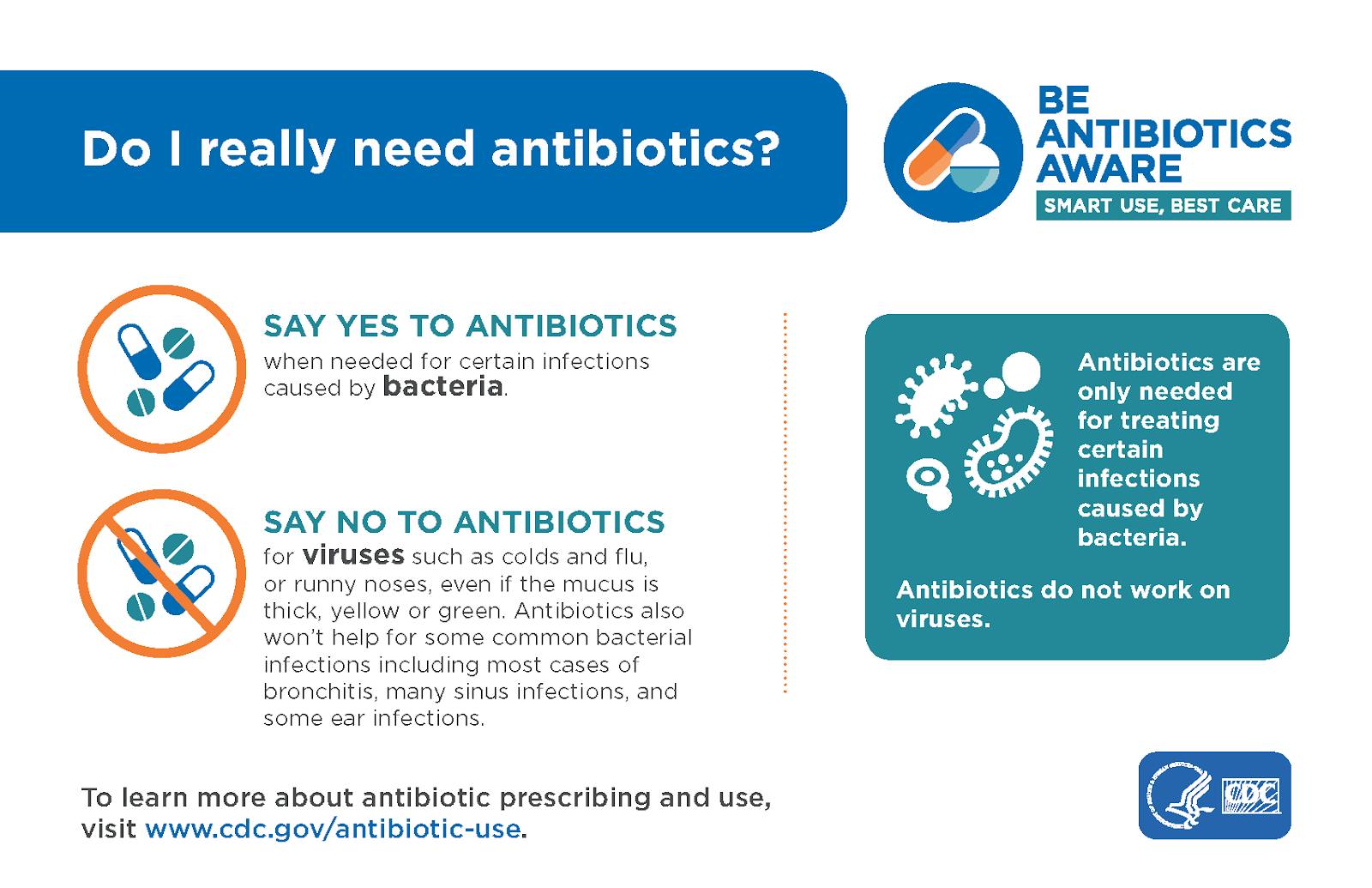Get smart about antibiotics: When are antibiotics right for you?
It is important for your medical provider to clearly establish whether you have a bacterial or viral infection, citing specific reasons to support their conclusion.
This should not be guesswork.
In this post, I’ll explain the difference between bacterial and viral infections. I’ll also explain how each condition is typically treated and which infections are effectively treated by antibiotics.
Adults with a virus typically don't have a fever over 100.4° F, though this is common in children. In general, bacteria tend to "set up shop" and cause symptoms in specific discrete areas, such as a skin infection in one contiguous area, a boil, an ear infection on one side, a bladder infection, or a single sinus.
Bacterial vs. viral infections
A bacterial strep throat infection oftentimes only comes as a pure sore throat with pus, and typically lacks other cold symptoms like a cough or a runny nose. Your body's immune system generates pus as a side effect of battling bacterial infections, which is a further clue.
Viruses, in contrast, tend to infect everywhere they can touch. These infections tend to cause a cough, sore throat, and runny nose as the virus spreads throughout the entire upper respiratory tract.
This is why sinus pressure throughout all areas and both sides of the face is much more likely to be viral in nature. Contrary to popular belief, the color of nasal discharge doesn't actually provide any indication of whether the illness is viral or bacterial.
Some viruses, such as adenovirus, also have the ability to cause viral pink eye and even diarrhea, all at the same time. This is generally a large clue that the causative agent is a lurking virus, as a single common bacterial infection generally can't affect that many areas simultaneously.
Treating viral infections
Thankfully, most common viruses that cause cold and flu-like symptoms resolve within 7-10 days. They can be miserable at the time, however, which is why contacting your medical provider is an important way to reduce or even completely mask those symptoms.
Tailored strategies that don't require antibiotics can help patients feel like themselves again while waiting for the immune system to completely resolve the infection.
According to the (IDSA), up to 98% of patients presenting with a few days of a cough, sore throat, and/or a runny nose have a virus. It's a safe bet to assume you are in that 98% of those criteria apply, but it also stresses the importance of having great support and follow-up from your medical provider.
If symptoms continue after 10 days, talk to your provider, as you may be in the 2% of people where a bacterial infection is mimicking a virus. Also, keep in mind that bronchitis is almost always viral, and does not require an antibiotic.
Treating bacterial infections
True bacterial infections can be effectively treated if your medical provider selects the correct antibiotic, though there is a growing threat to our remaining options.
Correct treatment requires "the right drug for the right bug" like a lock and key, as all antibiotics do not work on all bacteria. Due to improper antibiotic use, such as using antibiotics when they aren't needed, using expired antibiotics that are no longer potent, or using the wrong antibiotic when they are needed, bacteria have increased their resistance to our remaining antibiotics.
With further resistance, our remaining antibiotics could stop working altogether. Even worse, most doctors have seen improper antibiotic use cause completely unnecessary ER visits, hospitalizations, and ICU admissions due to unwanted and unexpected severe side effects.
Unlike many other medications, these side effects can randomly occur even if that antibiotic has been successfully used in the past many times. While none of us want to feel miserable during a cold, it's important to acknowledge that there is no cure that will resolve a common cold and that grasping at straws with improper antibiotics will cause more harm than good.
Learning more
For questions about antibiotics and Antibiotics Awareness, talk to your primary care provider or urgent care provider during your next visit. You can also learn more on the Centers for Disease Control and Prevention website.
Article written by Chief Medical Director with Northwell Health-Urgent Care.



